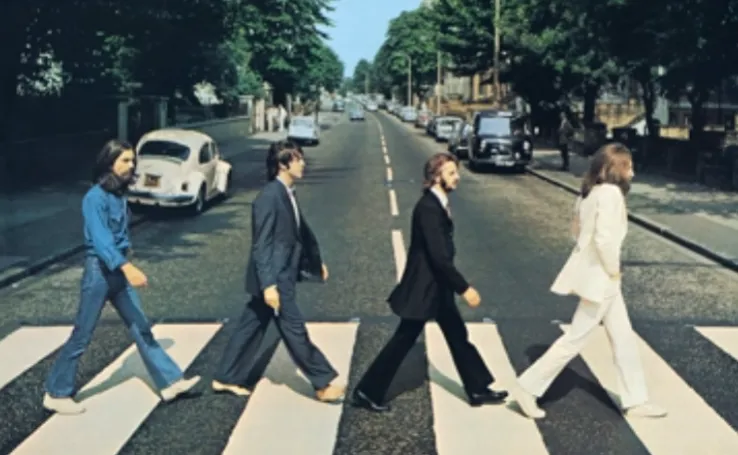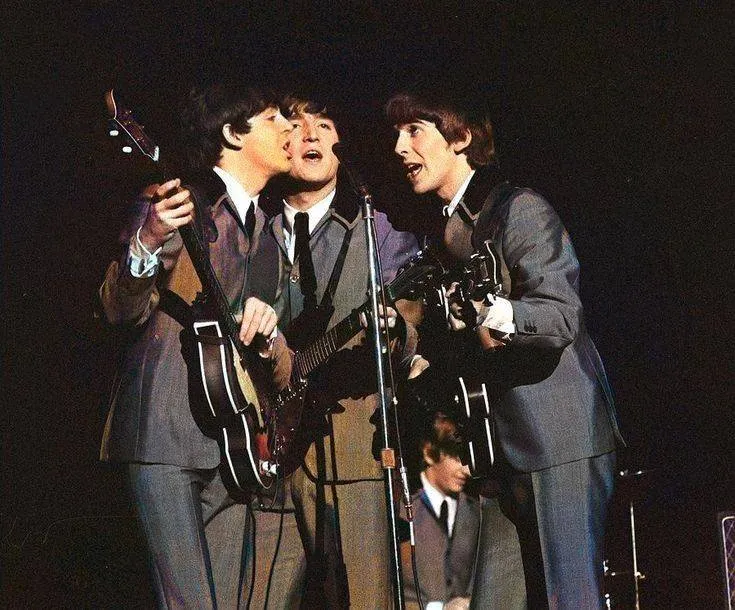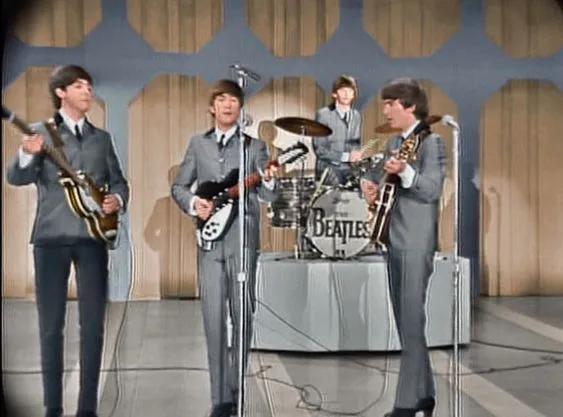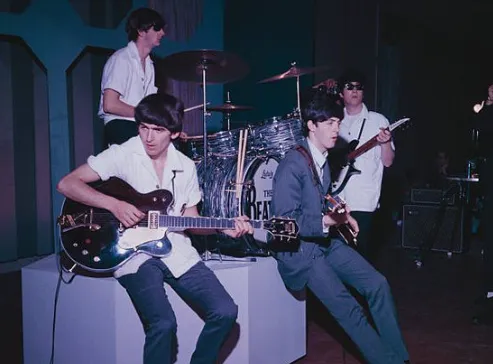The Beatles and Queen Elizabeth II represent two quintessentially British icons that significantly shaped the 20th century, albeit in very different arenas. The Beatles, with their groundbreaking music and cultural influence, became global ambassadors of British pop culture, while Queen Elizabeth II, through her long and stable reign, symbolized continuity and tradition. Their intersections in history are not just moments of ceremonial importance but also instances where the changing cultural tides and steadfast traditions of Britain met and mingled.
The Beatles: A Cultural Revolution

The Beatles, comprising John Lennon, Paul McCartney, George Harrison, and Ringo Starr, emerged from Liverpool in the early 1960s and rapidly transformed the global music landscape. Their innovative sound, combining rock and roll with diverse influences, and their charismatic personalities captured the imagination of millions. Hits like "A Hard Day's Night," "Help!," and "Hey Jude" became anthems of a generation.

The Beatles were more than just musicians; they were cultural icons who embodied the spirit of the 1960s—a decade marked by significant social and political change. Their influence extended beyond music to fashion, film, and even politics, as they became voices of the countercultural movement. Their music challenged the status quo and inspired countless artists and fans to question societal norms and explore new artistic expressions.
Queen Elizabeth II: A Symbol of Continuity

In contrast, Queen Elizabeth II represented stability and continuity. Ascending to the throne in 1952, she became a figurehead for the United Kingdom and the Commonwealth during a time of immense change. Her reign saw the end of the British Empire, the Cold War, and the transformation of Britain into a multicultural society. Through all these changes, the Queen remained a steady and reassuring presence.

Her commitment to duty, calm demeanor, and ability to adapt to changing times without compromising the dignity of the monarchy earned her respect and admiration worldwide. Despite the varying attitudes toward the monarchy over the decades, Queen Elizabeth's personal popularity remained high, and she played a crucial role in maintaining the relevance and respect of the royal family in modern times.
The Intersection: The Beatles and the Queen

The most notable intersection of The Beatles and Queen Elizabeth II occurred on October 26, 1965, when the Fab Four were awarded the MBE (Member of the Most Excellent Order of the British Empire) at Buckingham Palace. This event was a significant cultural moment, highlighting the changing attitudes towards popular culture and its recognition by the establishment.

When the news broke that The Beatles were to be honored with MBEs, it sparked a mix of reactions. Some traditionalists were outraged, viewing pop musicians as unworthy of such honors. Several previous recipients of the MBE returned their medals in protest. However, for many, this recognition was a sign that The Beatles' contributions to British culture were undeniable and significant.
The MBE Ceremony

The ceremony itself was a blend of the formal and the informal, reflecting the unique status of The Beatles. As they arrived at Buckingham Palace, thousands of fans gathered outside, underscoring the band's massive popularity. Inside, the band members were reportedly nervous but managed to maintain their charm and humor.
During the investiture, Queen Elizabeth II, known for her composure and grace, interacted briefly with each Beatle. The event humanized the monarchy for many and symbolized a bridging of generations. The Beatles, despite their revolutionary image, expressed great respect for the Queen and the honor bestowed upon them.
John Lennon, always the most outspoken of the group, later quipped that they were so nervous that they "had a laugh to calm our nerves" before meeting the Queen. This candid admission added to their everyman appeal and showcased the blend of reverence and irreverence that characterized their public persona.
Cultural Impact and Legacy

The awarding of the MBEs to The Beatles was more than a ceremonial act; it was a recognition of the profound cultural shift occurring in Britain. The 1960s were a time of significant social change, with old hierarchies being questioned and new cultural norms emerging. The Beatles were at the forefront of this change, and their acknowledgment by the Queen represented an official acceptance of the new cultural landscape.
This event also highlighted the evolving nature of the British monarchy. Queen Elizabeth II, by awarding MBEs to The Beatles, demonstrated her awareness of the changing times and her willingness to embrace new forms of cultural expression. This adaptability has been a hallmark of her reign, helping to maintain the monarchy's relevance in a rapidly changing world.
Later Interactions and Continued Influence

The Beatles' interaction with the monarchy did not end with the MBE ceremony. Over the years, members of the band continued to engage with royal events and honors. Paul McCartney, in particular, has had several interactions with the royal family, including being knighted by Queen Elizabeth II in 1997 for his services to music. This knighthood further cemented the legacy of The Beatles as not just pop culture icons but as significant contributors to British heritage.
Moreover, the influence of The Beatles on British culture and their relationship with the monarchy has continued to be a topic of interest and celebration. Their music remains timeless, continually attracting new generations of fans. Events celebrating milestones in their career often receive royal recognition, underscoring their lasting impact on British cultural identity.
Conclusion: A Symbolic Relationship

The relationship between The Beatles and Queen Elizabeth II, marked by the MBE ceremony and subsequent interactions, symbolizes the dynamic interplay between tradition and modernity. The Beatles, with their groundbreaking music and cultural influence, represented the innovative and rebellious spirit of the 1960s. In contrast, Queen Elizabeth II, with her steadfast dedication to duty, embodied the enduring traditions of the British monarchy.

Their intersection was not just a moment of mutual recognition but a broader reflection of the evolving British society. The Beatles' recognition by the Queen acknowledged the importance of cultural change, while the band's respect for the monarchy highlighted the enduring significance of tradition. Together, they represent two sides of the same coin—an iconic blend of the old and the new, tradition and innovation, stability and change. This relationship continues to resonate, reminding us of the enduring power of both music and monarchy in shaping national identity and cultural legacy.



